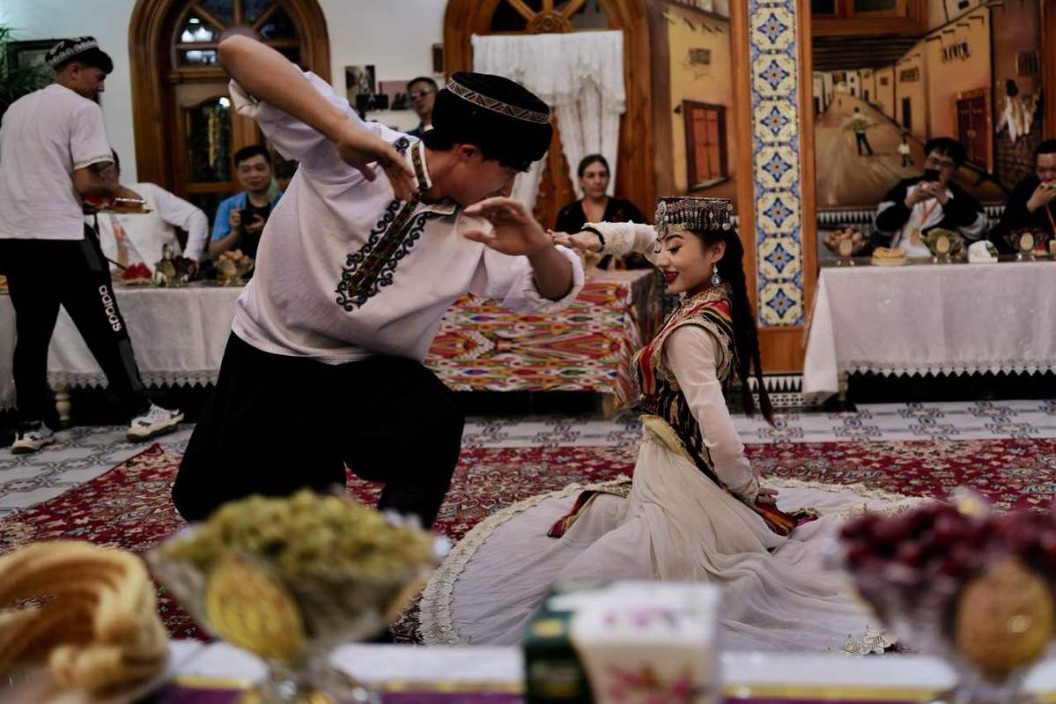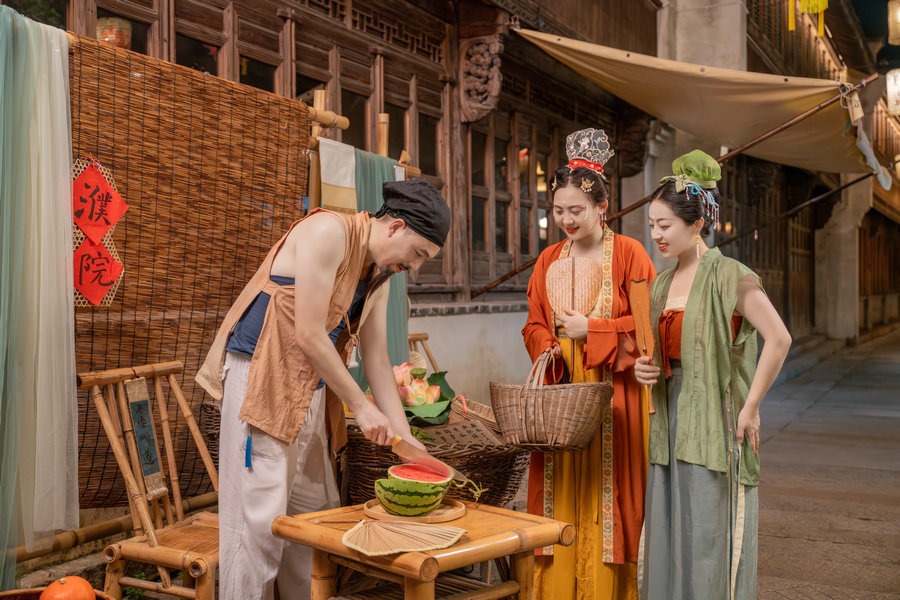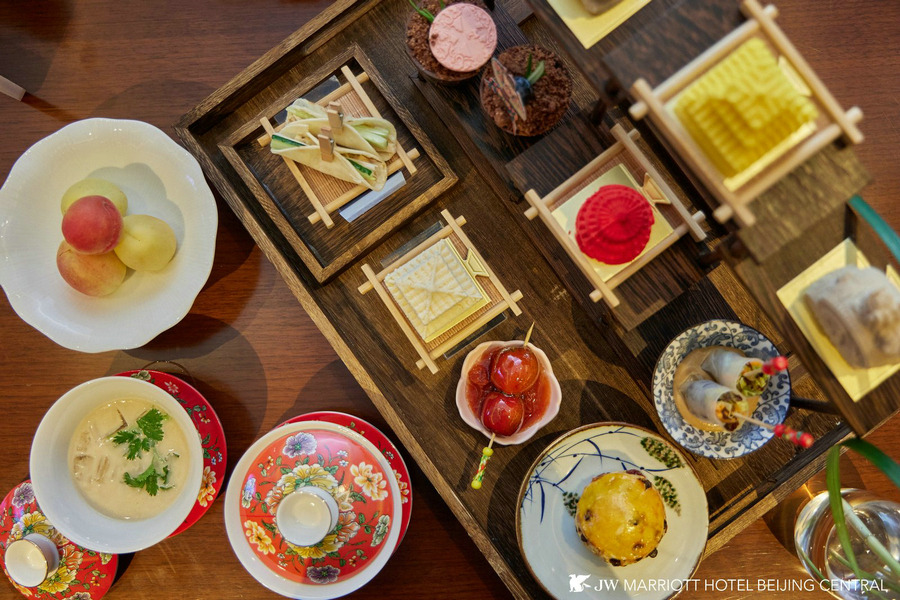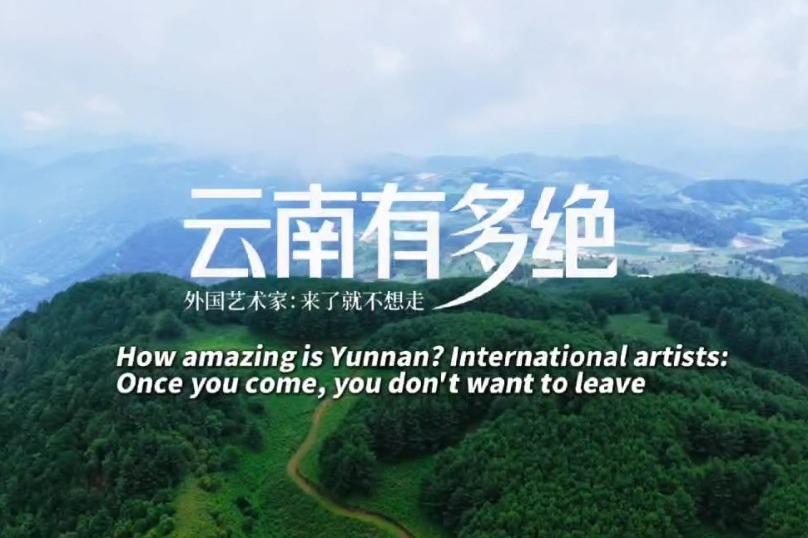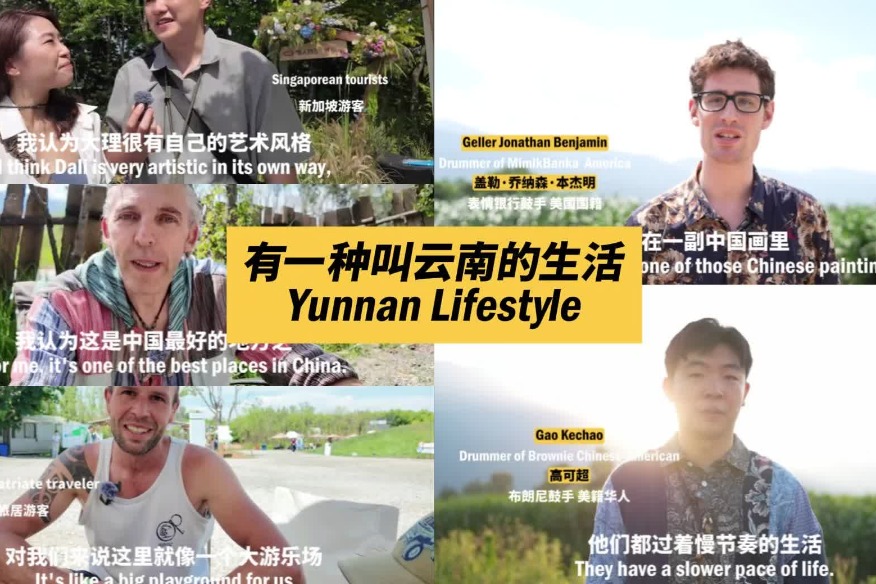Sense of history gives Xitang modern appeal


Water town attracts droves of tourists with its historical, relaxing ambience, Wang Ru reports in Jiaxing, Zhejiang province.
A scene in Mission Impossible III involving Tom Cruise running through the small alleys of a picturesque town in China left a deep impression on some of those who watched and propelled Xitang, an ancient town in Jiashan county, Jiaxing, Zhejiang province, where the scene was filmed in 2005, to a leading role in tourism.
Walking along Xitang's canals, visitors may feel like they are in a Chinese ink painting with blue-stone roads, quaint alleys and houses built in the distinctive style of Huizhou, a historical prefecture that straddled the border between southern Anhui province and the north of Jiangxi province, where homes have white walls, dark tiles and layered horse-head gables.
Even after nearly two decades, the water town is still packed with visitors who come to appreciate its scenery and culture.
Over the ages, Xitang's development has been closely related to culture, which has endowed the ancient town with new grandeur, says Han Jinmei, a cultural scholar from Jiashan county, who is also former deputy director of Jiashan's cultural bureau.
He says that three types of culture are interwoven in the town — farming, commerce and the common culture — and adds that Xitang also has a distinctive farming culture that can trace its roots back to the Tang Dynasty (618-907).
Farmers bartered and traded for daily necessities in the town, gradually turning it into a thriving market during the Song Dynasty (960-1279). Then in the Qing Dynasty (1644-1911), as merchants from Huizhou migrated eastward to Xitang, more and more people came to settle in the town to provide services to the farmers, gradually turning it into a commercial center.
"Many of the merchants' ancestors were farmers. The formation, development in scale and improvements to the living facilities of the town are all related to farming. That's why we say it has a deep farming culture," Han explains.
This culture can still vividly be seen in the Jiashan tiange (literally "field songs") that farmers sang as they labored in the fields. It has been recognized as a national-level intangible cultural heritage, and is characterized by its clear and melodious style and storytelling.
"Every tour guide in Xitang can sing tiange. They often demonstrate the traditional art to tourists so that they can enjoy it," Han says.
In the middle of the Qing Dynasty, some Huizhou merchants brought their aesthetic values and business styles with them, giving rise to a genteel culture in Xitang, Han says.
"Huizhou merchants brought Huizhou-style buildings, with their layered horse-head gables, which Xitang hadn't had previously. Moreover, they were famous for their credibility and benevolence, and brought this spirit of doing business to Xitang, as well."

















